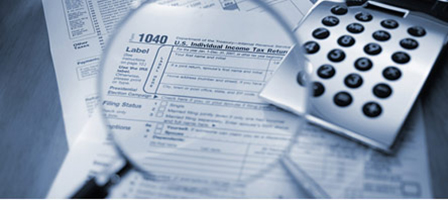BARTERING IS TAXABLE INCOME
On December 22, 2017, The Tax Cuts and Jobs Act was signed into law. The information in this article predates the tax reform legislation and may not apply to tax returns starting in the 2018 tax year. You may wish to speak to your tax advisor about the latest tax law. This publication is provided for your convenience and does not constitute legal advice. This publication is protected by copyright.
Article Highlights:
Exchange of goods or services
Bartering is taxable income
Bartering exchanges
Bartering credit units
Bartering is the trading of one product or service for another. Often there is no exchange of cash. In addition to individuals, small businesses sometimes barter to get the products or services they need. For example, a plumber might trade plumbing work with a dentist for dental services. Bartering may take place on an informal one-on-one basis between individuals and businesses, or it can take place on a third-party basis through a modern barter exchange company.
Some individuals and small businesses believe that bartering avoids taxable income because there is no exchange of money. This is not true, however; barter exchanges are considered taxable income by the IRS. The fair market value of goods and services exchanged must be included in the income of both parties to the exchange.
Business Owners – If you are the owner of a business, you may sometimes find it to your advantage to barter for goods and services rather than pay in cash. You should be aware, however, that the fair market value of the goods that you receive through bartering is taxable income, just as if you had received a cash payment.
Exchanges of services result in taxable income for both parties. Say, for example, that a computer consultant agrees to an exchange of services with an advertising agency. Both parties to the transaction are taxed on the fair market value of the services received. This is the amount they would normally charge for the same services. If the parties agree to the value of the services in advance, this will be considered the fair market value, unless there is contrary evidence.
Income is also realized when services are exchanged for property. For example, if an architectural firm does work for a corporation in exchange for shares of the corporation’s stock, it will have income equal to the fair market value of the stock.
Barter Exchanges – Individuals and business owners sometimes join barter clubs that facilitate barter exchanges. Some exchanges operate out of an office and others over the Internet. Unlike one-on-one bartering, members of exchanges are not obligated to barter or purchase directly from a seller. Instead, when a barter exchange member sells a product or a service to another member, their barter account is credited for the fair market value of the sale. When a barter exchange member buys, the account is debited for the fair market value of the purchase. These clubs generally use a system of “credit units” that are awarded to members who provide goods and services and can be redeemed for goods and services from other members.
If you participate in a barter club, you’ll be taxed on the value of credit units at the time they are added to your account, even if you don’t redeem the units for actual goods and services until a later year. For example, say that in Year 1, you earn 2,000 credit units and each unit is redeemable for one dollar in goods and services. In Year 1, you’ll have $2,000 of income. You won’t pay additional tax if you redeem the units in Year 2, since you will already have been taxed once on that income.
When you join a barter club, you’ll be asked to give the club your social security number or employer identification number and to certify that you aren’t subject to backup withholding. Unless you make this certification, the club must withhold tax from your bartering income at a 28% rate.
By January 31st of each year, the barter club will send you a Form 1099-B, which shows the value of cash, property, services, and credits that you received from exchanges during the previous year. This information will also be reported to the IRS.
If you have questions related to bartering income, please give this office a call.




Leave a Reply
Want to join the discussion?Feel free to contribute!